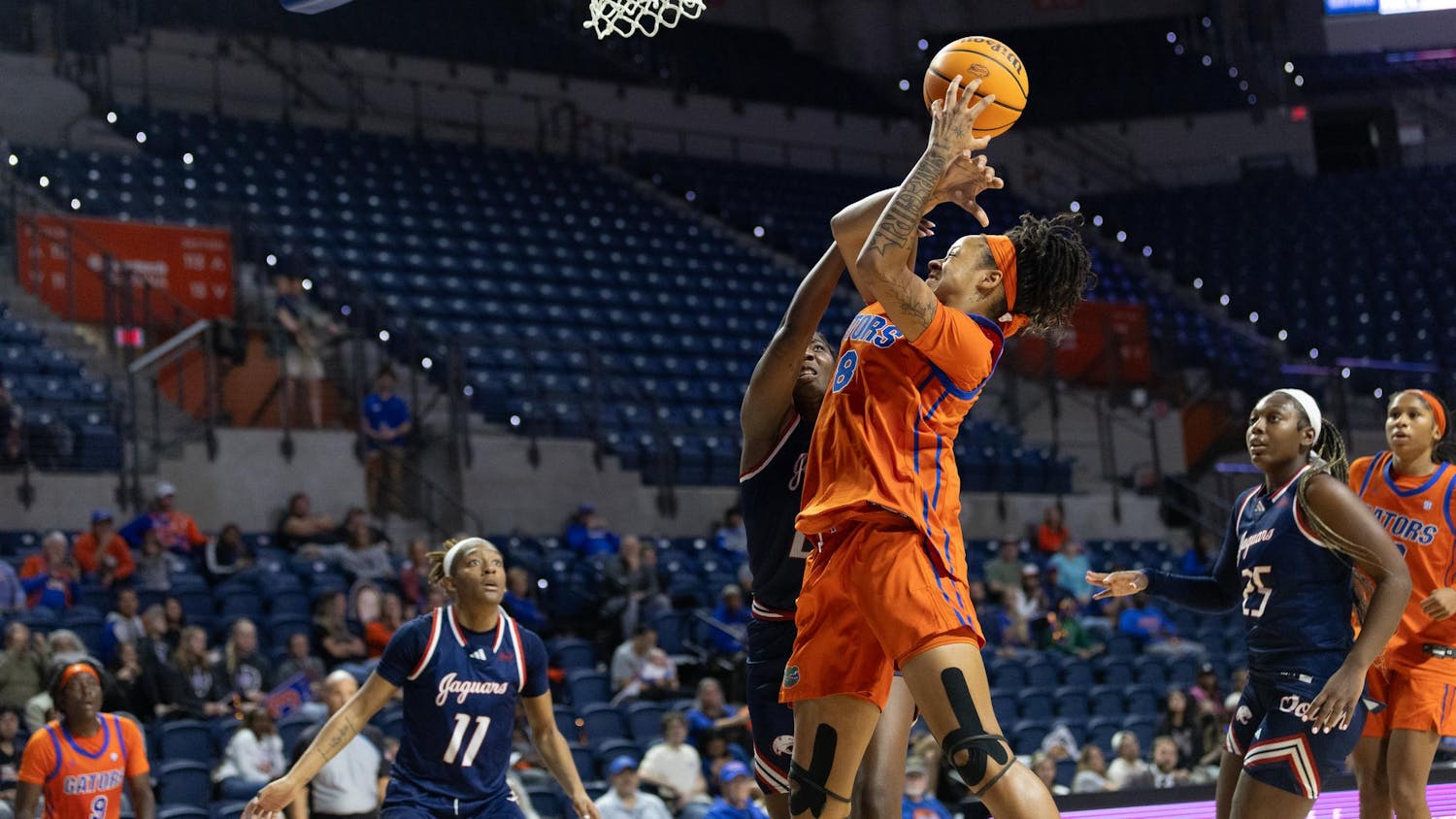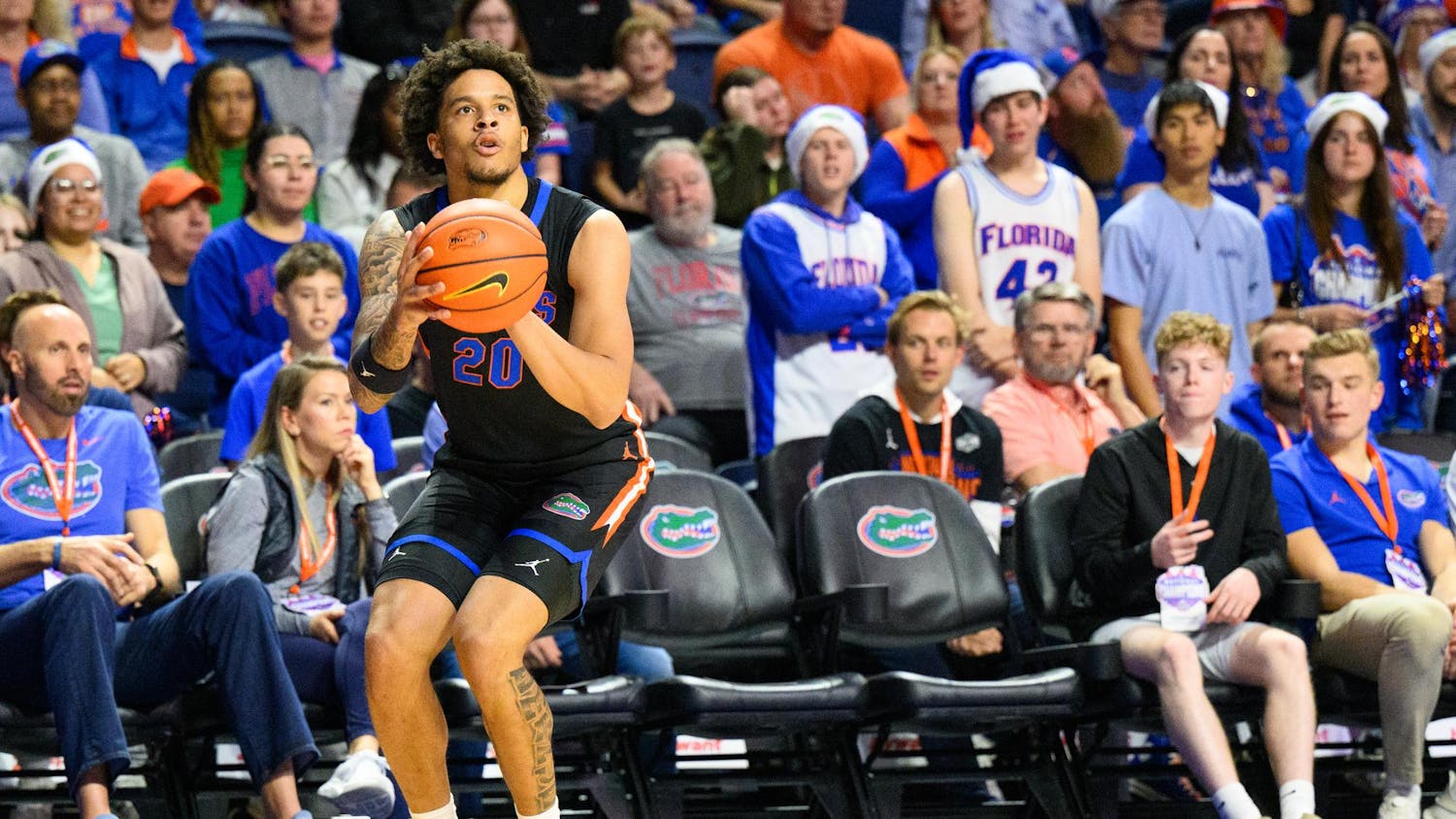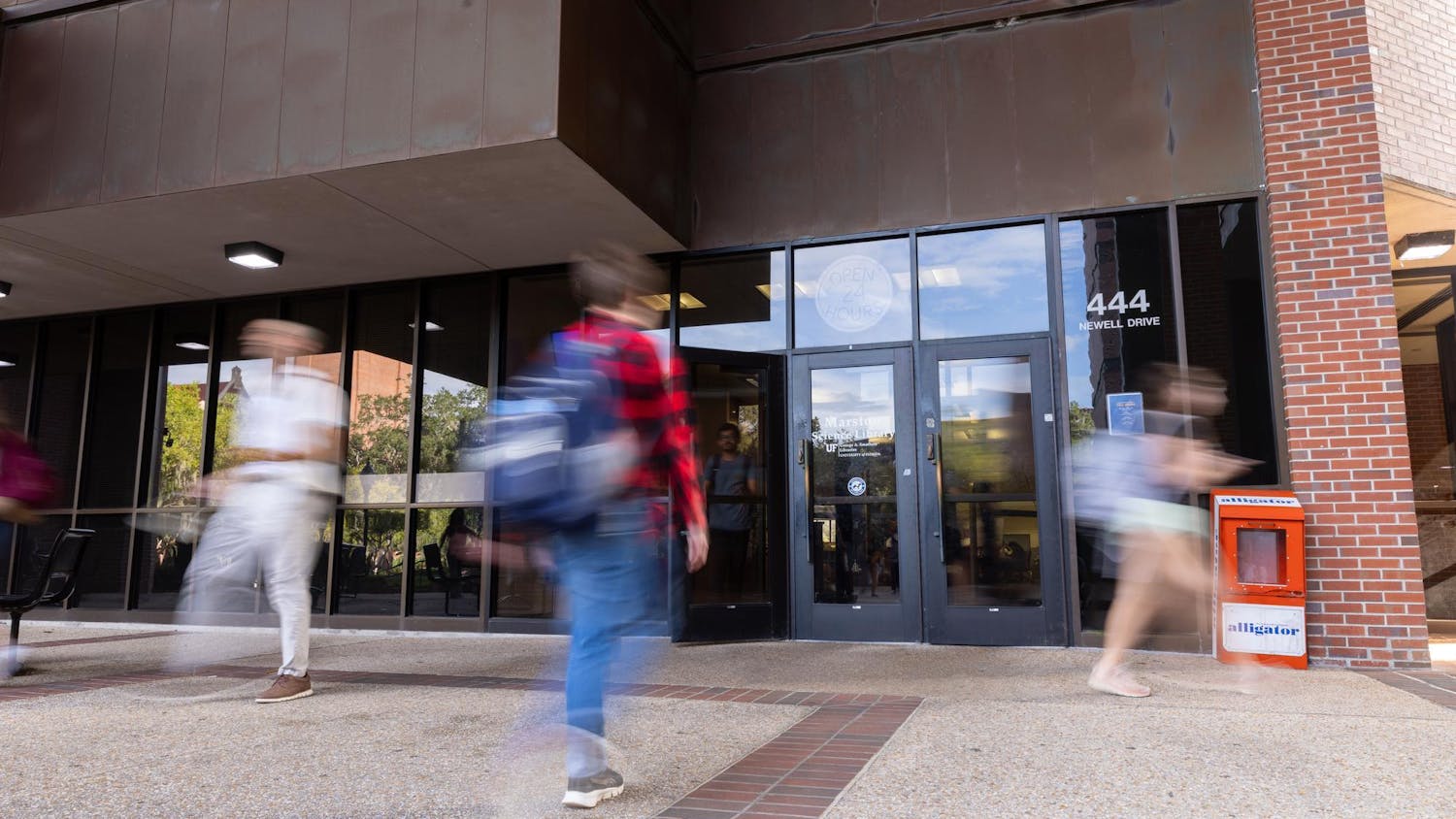After passing plans to request more than $100 million in federal earmarks and hiking dorm rent and parking decal prices Tuesday, UF's Board of Trustees listened to impassioned pleas from UF's graduate assistant and faculty unions about low stipends and possible layoffs.
The three speakers said many of UF's graduate assistants are not paid a living wage, though the university claims to want to shift to graduate education and research. They also claimed that UF could prevent layoffs by tapping hundreds of millions of dollars in unrestricted funds.
UF graduate student Regina Martin said UF has about $900 million it could use to soften the blow of budget cuts, but UF officials took issue with that claim.
"I don't know whether they're naïve, or trying to mislead," UF President Bernie Machen said, "when they suggest that that could be used to pay for some of the budget cuts."
He said he welcomes an open discussion of UF's budget after colleges present their proposals with 10 percent cuts in the next few weeks, but said claims like that are not helpful. "(The discussion) won't be helped if people are misrepresenting the facts," he said.
The $900 million figure Martin cited, which has also been cited by John Biro, president of the United Faculty of Florida, UF's faculty union, is from a recent audit by Florida's Auditor General.
Although the money is listed as "unrestricted," UF spokeswoman Janine Sikes said that term is misleading. The money is already allocated for various uses and, furthermore, only about $80 million of that is held by UF.
The rest is held by affiliated organizations such as Shands at UF and the University Athletic Association, which are not part of UF's budget.
Of the $80 million in UF's budget, half is a reserve fund mandated by the state and the rest is money set aside by departments for supplies such as new computers or lab equipment, according to UF officials.
But the heads of UF's faculty and graduate assistant unions don't buy that argument.
"That is silly; it is disingenuous; and it's phony," Biro said.
He said even if it's true that UF cannot use the full $900 million to prevent layoffs, he believes at least some of it should be available.
For example, he said if the $80 million figure is more accurate, then, even taking into account the $40 million required to be set aside by state law, there is still another $40 million that UF doesn't have to spend on equipment.
"You got a choice of what to spend it on," he said. "They're not denying that they've chosen to spend it on equipment rather than people."
Regardless of where the money is located, Biro said it is clear UF has extra sources of revenue because it is hiring new faculty and staff.
According to its Web site, UF is currently advertising for 251 positions, 138 of which are for faculty.
"They have the money to do this, so how can it be that it's unavoidable that faculty have to be laid off?" he asked. Layoffs, he said, should be a last resort.
In an interview last month, Machen said UF is doing most of its hiring with non-state money.
He said UF is hiring some new faculty members with money from federal grants, and some are hired from differential tuition money UF is required to use for new hires.
Other positions, like some in the College of Medicine, support themselves through money collected by seeing patients, he said.
He also said UF is hiring at less than a third of its normal rate as a result of budget cuts.
Deeb Kitchen, co-president of UF's Graduate Assistants United, who spoke at the meeting about graduate assistant pay, said it's a matter of priorities.
If the problem is that UF's assets cannot be spent on things such as better pay for graduate assistants because of certain restrictions, he said, then maybe UF should think about changing the restrictions to allow for different uses of its money.
"Take a look at how it's restricted, unrestricted," he said.
He said even though UF is hiring new employees, giving them raises and was able to award Machen $285,000 in bonuses last year, many of UF's graduate assistants do not even make a living wage.
He said the last time UF's graduate assistants saw a pay raise was in 2006. Since then, the price of food, gas, rent and other necessities has gone up considerably, he said.
During contract negotiations this year, he said the graduate assistant union requested a raise of $1,000 but was rejected by UF. Since then, the union has offered to take a $400 one-time bonus, but UF has not accepted that offer either. Negotiations are currently at an impasse. UF officials declined to comment on specifics.
"We comprise half the instructional staff," Kitchen said. "We do the most undesirable labor that's required by research. Without question, we constitute the real foundation of The Gator Nation."
Martin, the other graduate student who spoke at the meeting, said almost 1,000 graduate assistants live below the federal poverty level.
UF has about 4,600 graduate assistants, according to Aaron Cerny, co-president of Graduate Assistants United.
And the average stipend, which she said is about $14,000 a year, is only about $1,200 more than UF's cost-of-living estimate for in-state students, according to her calculations. As a result, she said many assistants have to take out loans to support themselves.
This shouldn't have to happen, she said, because the combined load of taking classes and teaching is a full-time job, and UF should provide enough pay for all of its graduate assistants to live on while working and taking classes full-time.
UF Trustee Danny Ponce, however, expressed some concern with giving graduate assistants bigger stipends. He said he's sympathetic to their plight but said some of the students don't seem appreciative of UF's recent creation of a health care plan for graduate students, which cost UF about $6 million.
"It seems like it's a little unappreciated by certain members of that group," he said after the meeting.
"You got to wonder, god, if you do that, you know, if you do more… will it be appreciated?"
Kitchen said he thinks graduate assistants shouldn't have to feel appreciative.
"That was not something that was given to us (that) we should be appreciative for, that is something we had to force on them," he said. Furthermore, he said he thinks UF is morally obligated to provide health care for its employees.
Ponce said he disagrees.
"Some people will look at it as a moral obligation, but that moral obligation still cost this university $6 million," he said.





